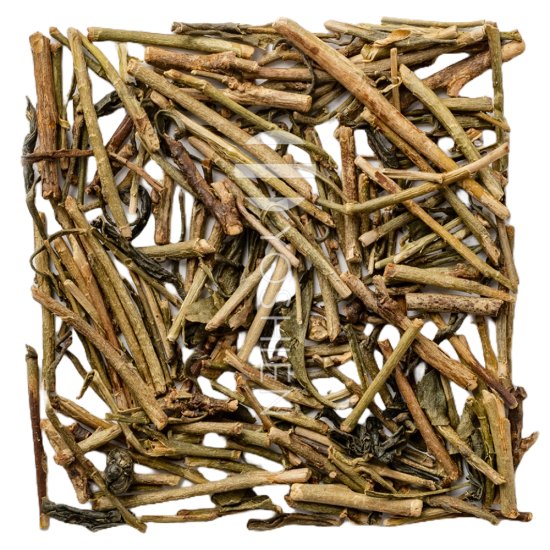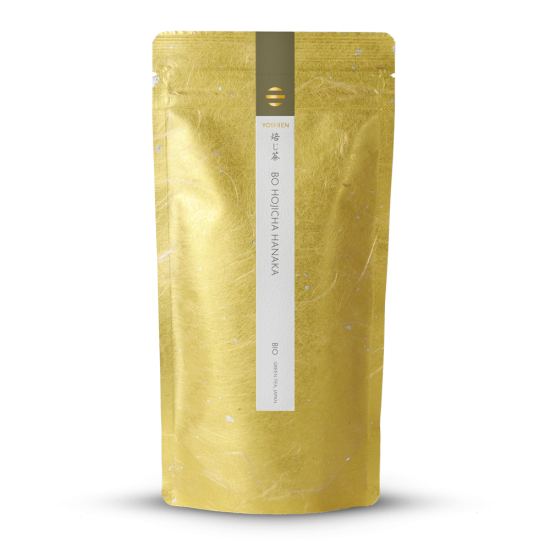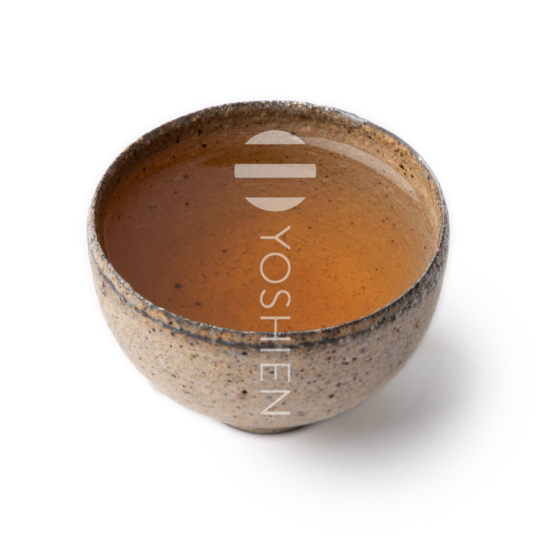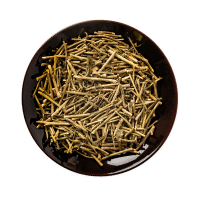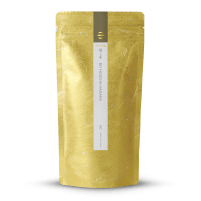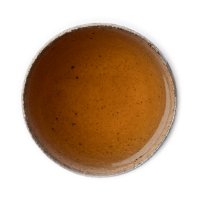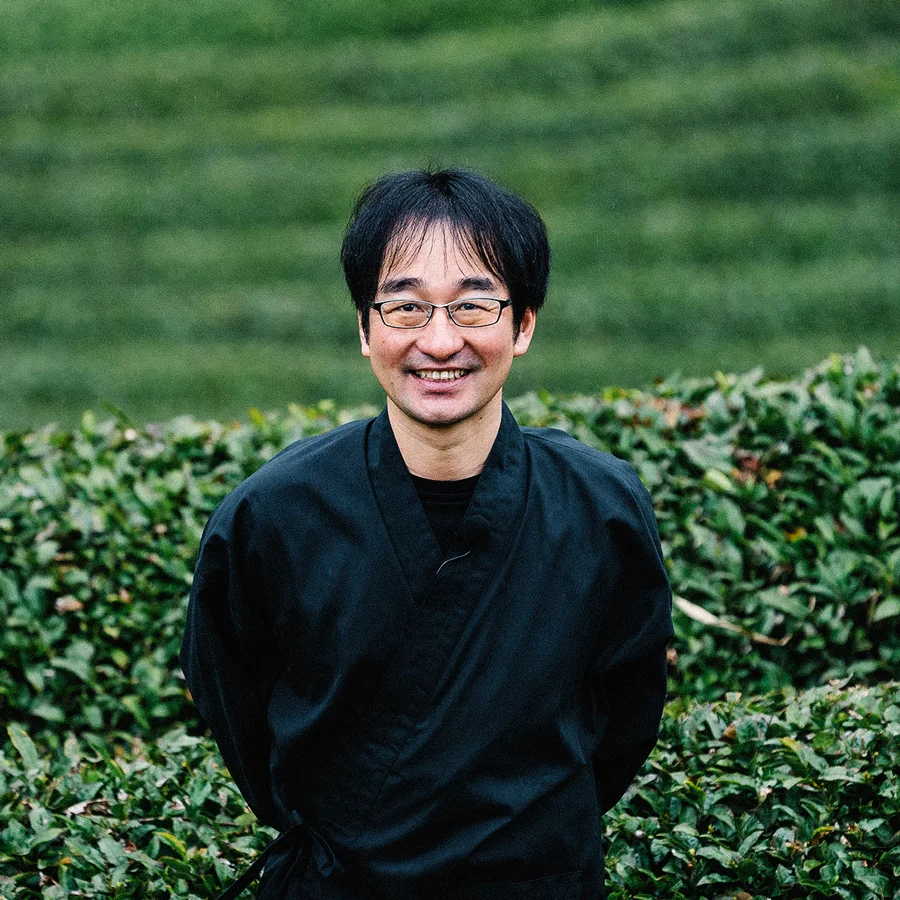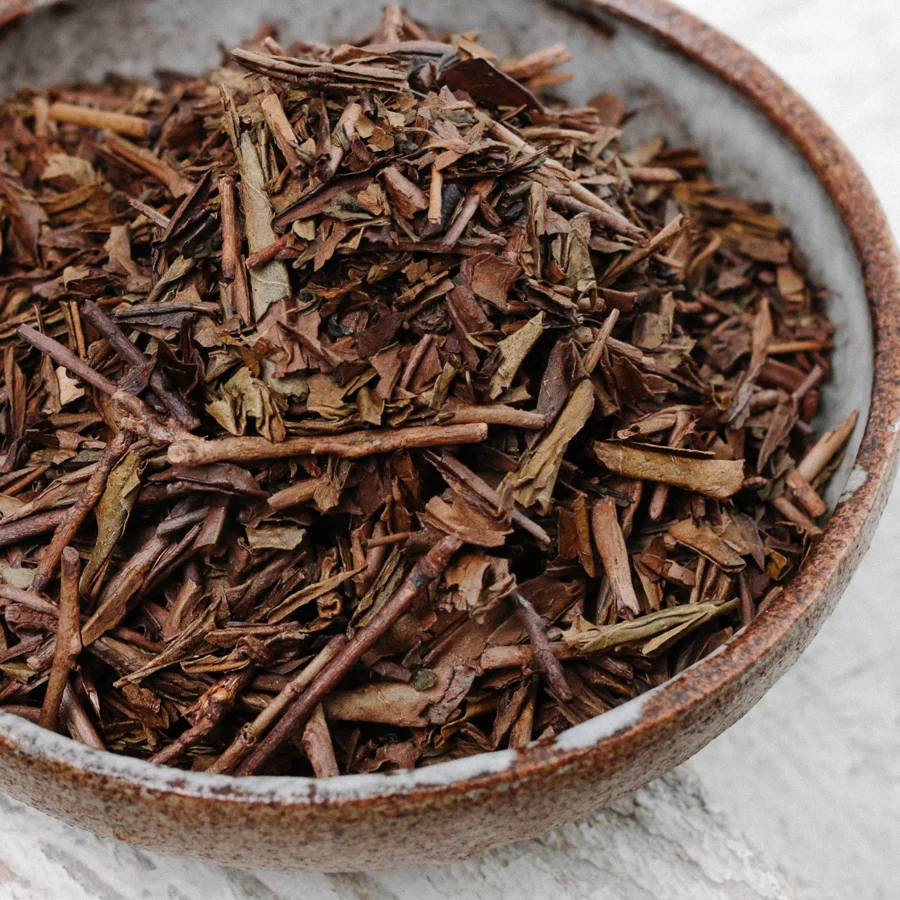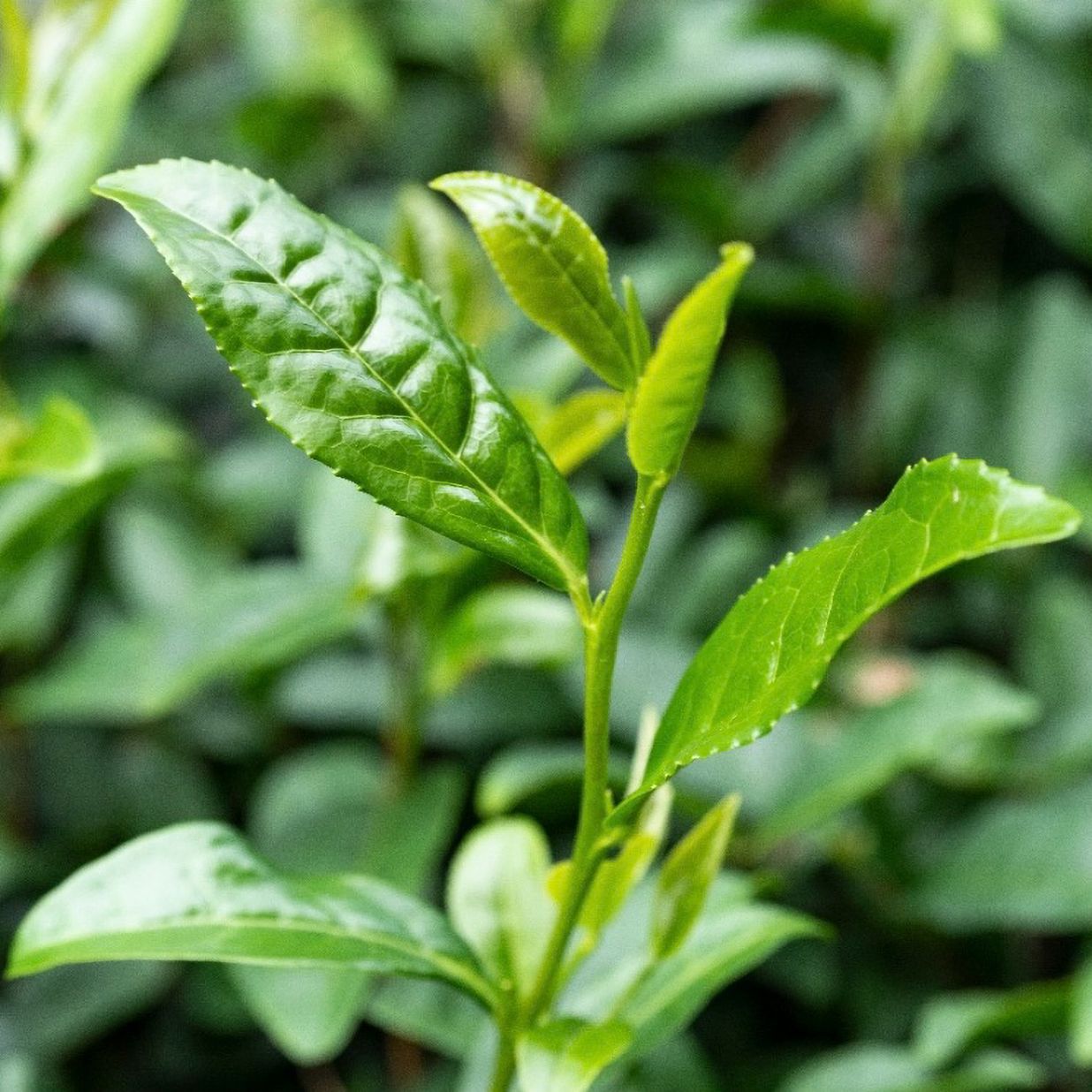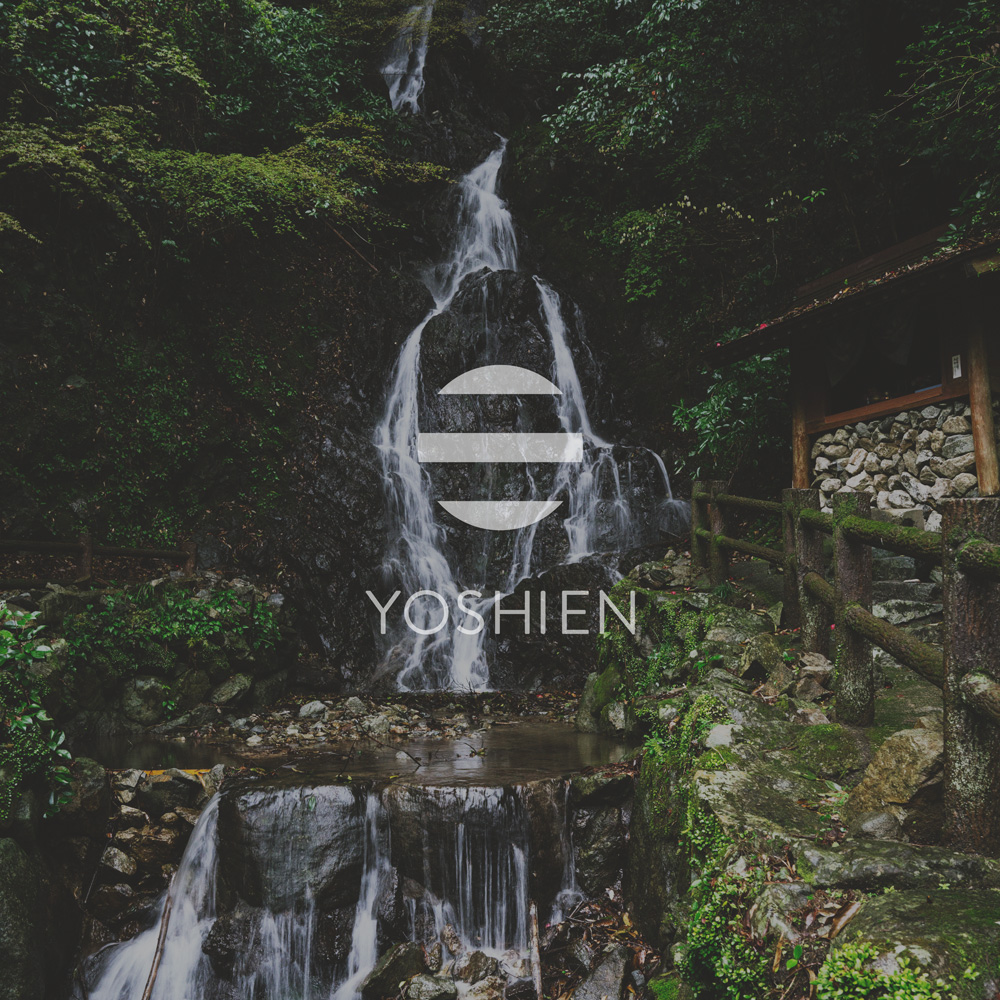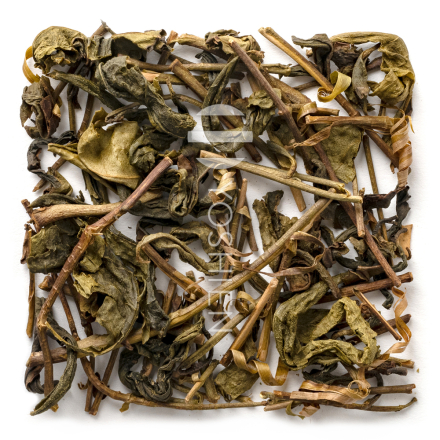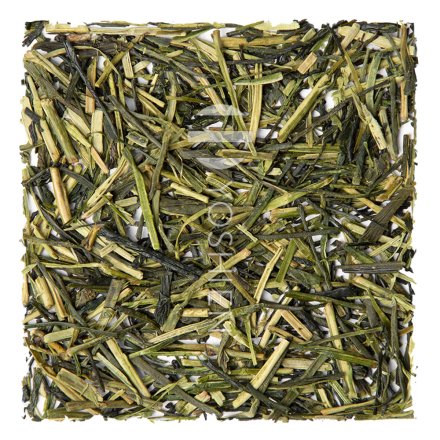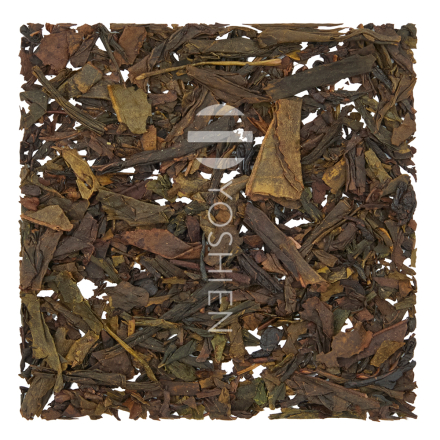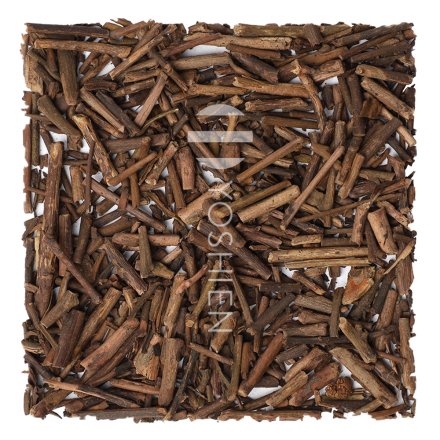Kamairi Hojicha
This tea starts off as a Kamairi Bancha: a pan-roasted green tea made from a later harvest, with fine stems carefully separated and roasted relatively mildly. This results in Mr. Miyazaki's signature Hanaka (花香) or "flower scent”, along with a wonderfully soft flavour profile rich in amino acids.
Gokase 五ヶ瀬
The Miyazaki Sabo tea fields are located at a relatively high altitude (>500m) in the mountainous terrain of northern Miyazaki prefecture. Although it is still in the tropical climate zone, reaching up to 33°C in Summer, the night and Winter temperatures here are very low, sometimes dropping to -10°C. In Winter there is some snowfall and frost can occur from the beginning of October to the end of April. The fields have been cultivated organically since the 1980s, using only natural fertilisers such as Aburakasu oil cake.
Organic Certification

PL-EKO-01
Nicht-EU-Landwirtschaft



